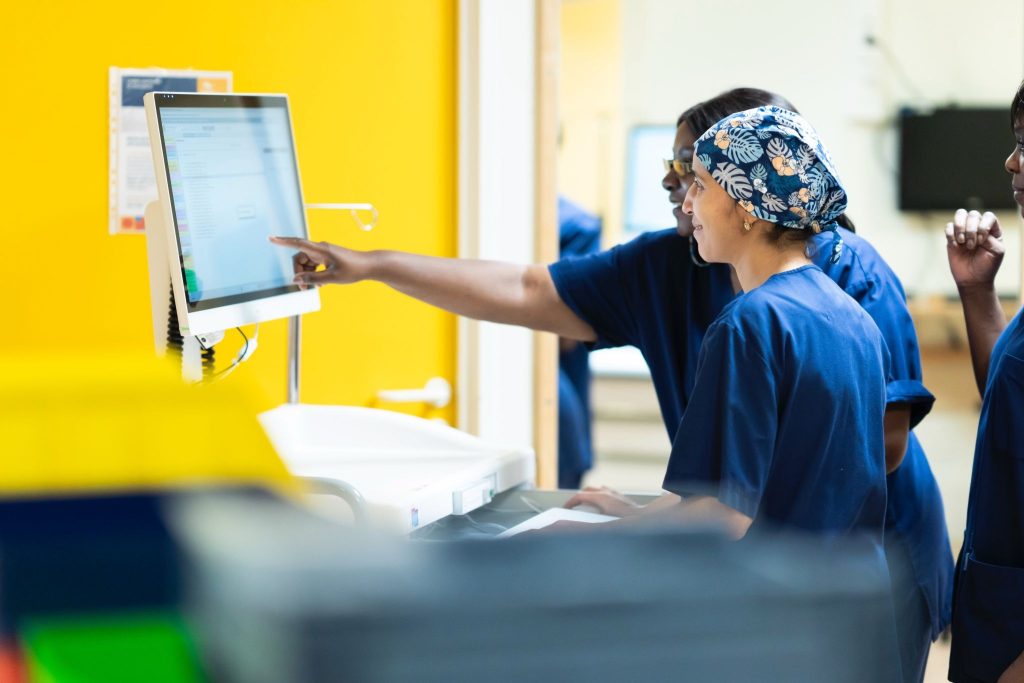
In the fast-paced environment of modern healthcare, having reliable and efficient technology can directly impact patient safety and healthcare outcomes. Medical professionals need robust and versatile tools that support their workflows without adding complexity. Rugged medical all-in-one workstations have emerged as a pivotal solution, combining the power of medical cart computers with durability and portability to optimize patient care and safety.
Why Rugged Medical Workstations are Essential in Healthcare
Rugged medical all-in-one workstations offer an integrated approach to healthcare technology. Designed to withstand demanding hospital environments, these systems are built to last while delivering top-tier performance. Unlike traditional medical computing devices, rugged workstations are engineered to be resistant to drops, liquids, and the wear and tear of everyday hospital use, ensuring continuous operation even in critical conditions.
One of the primary reasons rugged workstations are crucial in healthcare settings is their ability to handle multiple functions in a single unit. From patient monitoring and medication management to telehealth consultations, these workstations enable medical teams to perform essential tasks efficiently without interruptions due to hardware failures, battery draining, or limited mobility. This enhances productivity and minimizes errors, which are critical factors for improving patient safety.
Improving Patient Safety with Real-Time Access to Data
Real-time access to patient data is vital in making informed decisions quickly. Rugged medical all-in-one workstations provide healthcare professionals with seamless access to electronic health records (EHR), diagnostic tools, and medical imaging, streamlining decision-making processes at the point of care. With built-in features such as barcode scanning for medication administration and RFID readers for secure access, these systems ensure that every patient receives the correct treatment, minimizing the risk of human error.
Enhancing Mobility and Workflow Efficiency
Mobile medical carts equipped with rugged all-in-one workstations revolutionize the mobility of healthcare staff. These portable units allow medical teams to move quickly between patient rooms while staying connected to critical patient data. Mobility reduces the need to transport patients unnecessarily and enhances the overall patient experience.
In emergencies, the ability to move swiftly with reliable, high-performance technology can make a significant difference. For example, medical cart computers eliminate the need for manual data entry or outdated systems that may slow down healthcare professionals. By integrating rugged workstations, hospital workflows become more streamlined, allowing healthcare providers to focus on delivering high-quality care without the disruptions caused by inefficient technology.
Durability and Long-Term Cost Efficiency
Healthcare facilities can save on costs in the long term by investing in rugged medical all-in-one workstations. While these devices may require a higher initial investment, they are designed to withstand the rigors of daily hospital use, extending their lifespan compared to traditional systems. This reduces the need for frequent replacements or costly repairs, leading to a lower total cost of ownership.
In addition to their durability, rugged workstations are designed for easy cleaning and disinfection, a critical feature in maintaining sanitary hospital environments. The rugged construction of these units allows them to endure frequent sanitation without damage, ensuring they remain functional even after exposure to harsh cleaning agents.
Fanless, Battery Operated
Medical all-in-one workstations that are fanless reduce airborne contaminates as there is no fan to pull in and recirculate particulates. The VESA-mountable display-integrated touchscreen computer can be powered by multiple hot-swappable batteries, eliminating the need for large, heavy, costly cart batteries. With a multi-battery charger stock with fully charged additional batteries, the unit can be used 24/7 and be available whenever needed.
Optimizing Telehealth and Remote Care
Telehealth has become an integral part of modern healthcare, particularly in the post-pandemic era. Rugged medical all-in-one workstations can support telehealth initiatives by providing the hardware necessary for video consultations, remote patient monitoring, and virtual check-ins. These devices offer healthcare providers flexibility in delivering care to patients beyond the confines of the hospital.
Whether used in clinics, long-term care facilities, or home health settings, the integration of telehealth capabilities in rugged workstations enhances the scope of care. By enabling healthcare professionals to monitor patients remotely and securely, these devices contribute to more efficient, patient-centered care, even when patients are not physically present at a healthcare facility.
Elevating Patient Safety with Rugged Medical All-in-One Workstations
Rugged medical all-in-one workstations are transforming healthcare by providing durable, multifunctional, and mobile solutions for improving patient care. By enhancing real-time access to data, optimizing mobility, and improving workflow efficiency, these workstations are a critical investment for any healthcare facility. Not only do they improve patient safety by minimizing errors and providing secure, accurate information, but they also offer long-term cost savings by reducing the need for frequent repairs or replacements.
As healthcare continues to evolve, the role of rugged workstations in enhancing patient outcomes and streamlining hospital workflows will only grow. Healthcare facilities looking to prioritize patient safety and efficiency should consider rugged all-in-one workstations as part of their strategy to improve the quality of care.

